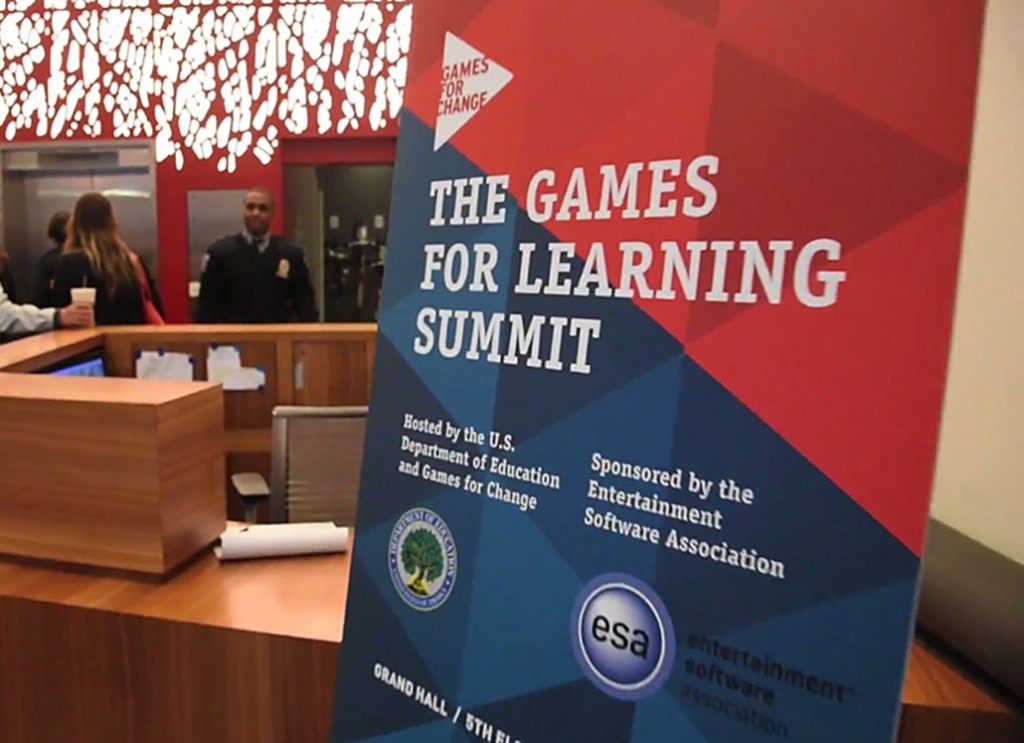
Games for Change experimented in 2015 with an invite-only learning games summit. Plans are to expand it greatly this year.
In a shakeup to the 12-year-old organization aimed at using games for social good, Games for Change announced Thursday that it would divide the festival into two discreet events and add both an award and an entire programming track focused on game-based learning to its June meeting.
New president Susanna Pollack told gamesandlearning.org that while Games for Change had “always had some sort of focus on learning games at the festival,” the attention increased last year when the organization hosted an invite-only, one-day event the day before the festival. The Games for Learning Summit was developed with the U.S. Department of Education and supported by the Entertainment Software Association.
“It was a bit of an experiment for us. We wanted to see what appetite our community would have and to see what other stakeholders in this space could we attract to come to New York and participate in this conversation,” Pollack said this week, adding that the event ended up being “standing-room only and we realized that there really was a demand for this kind of conversation.”
The result is that this year the Games for Learning Summit will be fully integrated into the two-day festival on June 23 and 24. The festival will include two other tracks of programming; including the traditional Civic & Social Impact and another new focus on Neuroscience & Health games.
“This time around anyone who comes to the festival can opt in to either follow that track all the way through the full two days or step in and experience a session they might find of interest,” she said.
Along with the expanded focus on learning games, Games for Change also announced Thursday that it would award a new award at this year’s festival, “Best Learning Game,” saying in the release that the award is aimed “to support the sector’s accelerating viability and to demonstrate the organizations growing commitment to the power of games in learning.”
Developers can submit their games at the Games for Change site and must include a 1-to-2-page PDF supporting document that outlines the intended learning objectives, audience, and assessment results.
“It’s not about best commercial game, clearly, but what we will be weighing are how and how well does a game achieve its learning goals, does it take advantage of the unique affordances of games to achieve its learning goals,” she said, adding the game could be aimed at improving cognitive or non-cognitive skills.
The announcements come as Games for Change is itself going through some major changes. The organization was run until 2015 by Asi Burak, a game designer and co-founder of Impact Games. Pollack, who has a background in children’s television programming, took the helm late last year and is implementing a new vision that appears aimed at connecting the festival more directly with kids and educators who may actually use the games. The development of a traveling game arcade and the teacher-friendly timing of the June summit mark a bit of a move away from focusing solely on producing organizations and nonprofits.
“I won’t say it was a shift in strategy but it was additive to our strategy,” Pollack said.
We do risk becoming an echo chamber and at the end of the day it really is all about the end-user. It is all about discoverability.
— Susanna Pollack, President of Games for Change
To address this change the festival is trying a series of changes to their programming. First, Games for Change will now split into two different events, a one-day “Games and Media Summit” held in conjunction with the Tribeca Film Festival and a two-day conference in late June. The timing of the main festival is, Pollack said, in part to attract teachers to the conference. The release from the organization stressed that, “Moving the Games for Change Festival to June allows us to continue to serve the growing community of G4C while encouraging more of a participation from educators, a critical demographic that we want to insure is part of the conversation of expanding gaming as a means for learning in and out of the classroom.”
The festival will also include an expo center that allows edtech and GBL companies to market and demo their products. Games for Change is also launching a game challenge for students, fueled by the growing coding movement and interest from civic organizations.
The specific speakers and panels for the June event are still in the works, but Pollack hopes the festivals and summits will serve as a convening of established producers and outside organizations that can help more games aimed at social good break into the mainstream and find sustainable business models.
“I think we need to move beyond the same people saying the same thing year after year and bring new voices in, and those that can help move the dial,” she said.
